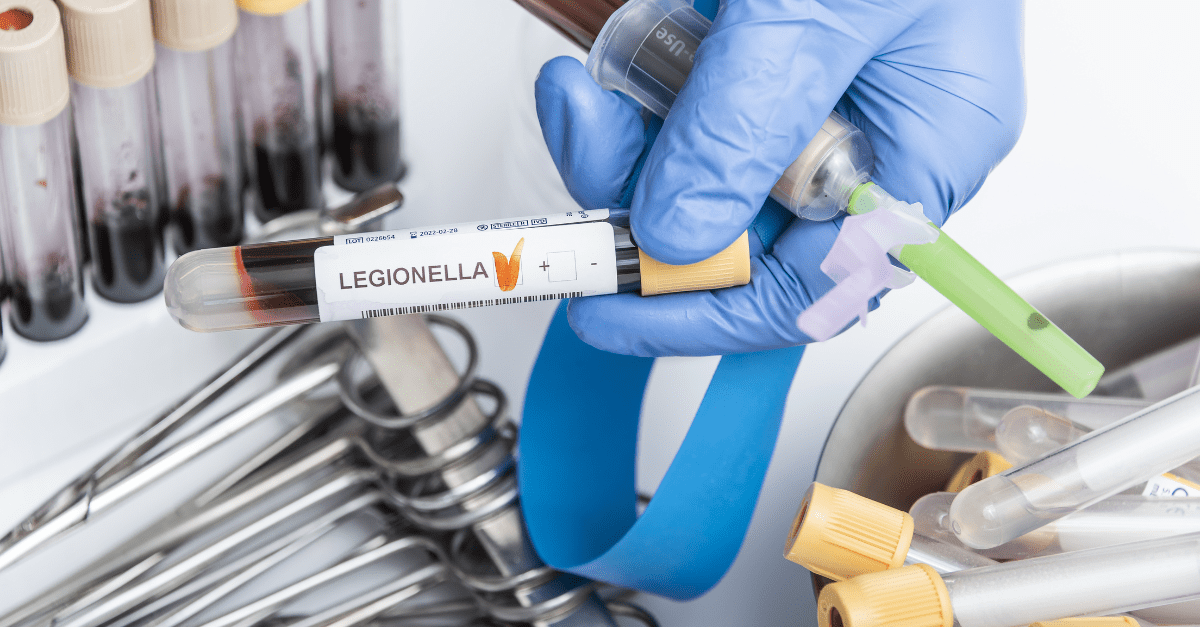Mandatory Legionella Water Management Program Update
As part of the new regulations set to take effect on July 12, 2024, Ohio Residential Care Facilities (RCFs) must now implement a mandatory water management program designed to manage the risk of waterborne pathogens, including Legionella. This update is outlined in Rule 3701-16-12, Section D of the Ohio Administrative Code.
What’s Required for a Legionella Water Management Program
In accordance with Section D of Rule 3701-16-12, each RCF must establish and enforce an effective water management program to identify hazardous conditions within the building’s water systems and take steps to manage the risk of Legionella transmission. These water management programs must align with the latest guidance from the United States Centers for Disease Control and Prevention (CDC) and follow the recommendations from the CDC’s Healthcare Infection Control Practices Advisory Committee (HICPAC) outlined in the “Environmental Infection Control Guidelines” (2019) or its successors.
Why is this Important to Legionella Water Management Programs
Legionella, the bacteria responsible for Legionnaires’ disease, can thrive in complex water systems, especially those that are poorly managed or where water remains stagnant. Residential care facilities, which house vulnerable populations, are particularly susceptible to outbreaks. This mandatory update is essential for RCFs to:
- Identify Hazardous Conditions: Evaluate all aspects of the facility’s water system, including hot water tanks, cooling towers, and plumbing, for potential Legionella growth risks.
- Mitigate Risk: Implement strategies such as temperature control, regular disinfection, and ongoing monitoring to minimize the likelihood of Legionella growth and transmission.
- Follow Best Practices: Ensure compliance with the CDC Legionella Water Management Program Overview and HICPAC recommendations for managing waterborne pathogens.
Infection Control Requirements for Residential Care Facilities
Under Rule 3701-16-12, RCFs must also establish comprehensive infection control programs to protect residents from the spread of communicable diseases. These programs are essential for tracking, preventing, and responding to infections and must comply with national standards.
Key Requirements Include:
- Appointing an infection prevention designee with specialized training or experience in infection control.
- Developing a written plan for infection surveillance and implementing reporting systems.
- Establishing hand hygiene protocols, proper laundry handling, and guidelines for the use of personal protective equipment.
- Ensuring appropriate isolation protocols and reporting communicable diseases to relevant health authorities.
By implementing these infection control measures, RCFs can ensure the safety of both residents and staff, reducing the risk of infection transmission and enhancing overall public health within the facility.
Licensure Application and Renewal Procedures for Legionella Water Management Program
Additionally, Rule 3701-16-03 outlines the application and renewal process for licensure of Residential Care Facilities (RCFs) in Ohio.
Application Process: Facilities must submit a detailed application at least 60 days before opening. This application includes essential documents such as proof of financial solvency, fire safety inspections, and compliance with zoning requirements. The process ensures that facilities meet safety and operational standards before receiving licensure.
Renewal Process: Licenses must be renewed through an electronic system. Renewals are due annually, with facilities required to submit updated documentation to maintain compliance. Failure to renew or submit required payments by February 15 could result in penalties, including revocation of the license by the Director of Health in accordance with Chapter 119.
Late Fees and Non-Compliance: If a facility misses the renewal deadlines or fails to provide accurate documentation, late fees apply. Extended non-compliance can result in serious consequences, including possible license revocation.
These changes emphasize the importance of meeting administrative deadlines and ensuring ongoing compliance to avoid disruptions in licensure.
At ChemREADY, we understand the importance of compliance with the latest regulations for Residential Care Facilities. Our water management solutions are designed to help RCFs meet the mandatory requirements for Legionella control, ensuring safety and regulatory adherence. In addition to infection control and licensure compliance, we offer customized services that optimize your facility’s water systems and infection prevention protocols. Partnering with ChemREADY ensures that your facility is prepared to meet the highest standards of care while maintaining operational efficiency. Contact us today to learn more about how we can assist you.

